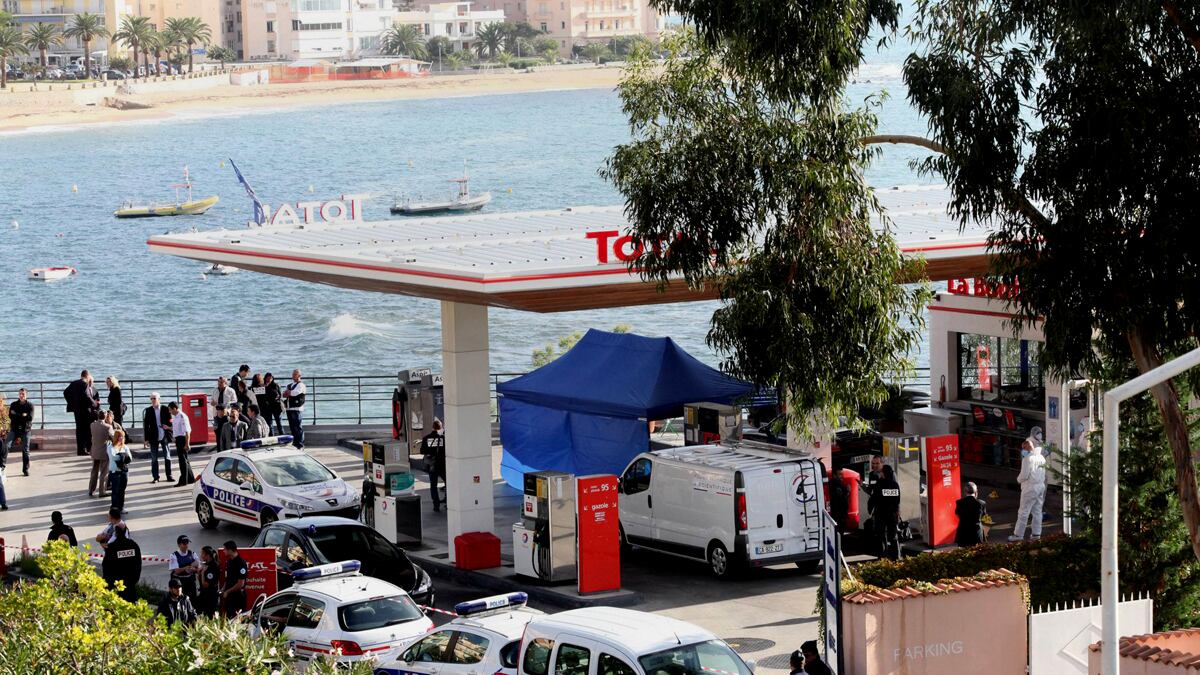There was a familiar song this week in Corsica, France’s so-called “Isle of Beauty”—a lament for this hot-blooded rocky land off the Mediterranean Coast famed for its dramatic outcrops, turquoise bays, organized crime, and contract killings. The drumbeat pop of an assassin’s bullet—for a prominent shopkeeper gunned down Wednesday evening—was met with the usual chorus of dismay. This time, there was a jet-engine flourish as two cabinet ministers touched down from Paris in the night to wax lyrical about the law.

The murder of Jacques Nacer, the shopkeeper and president of southern Corsica’s coveted Chamber of Commerce and Industry, marks Corsica’s 17th killing this year. The toll is exceptional for Corsica’s tiny population of 310,000, but it’s on par with the island’s average of 33 homicides or attempted homicides annually over the past decade—believed to be the highest rate in Europe, outpacing even Italy’s mafia bastions. The latest killing has also raised emotional new calls to action. But on this sublimely beautiful isle, where desperadoes prevail in comfortable impunity and silence reigns supreme, can the bloodshed ever stop?
Jacques Nacer’s murder bore the hallmarks of an insouciant assassination. Shortly before his 7 p.m. closing time on Wednesday, Nov. 14, the jovial father of two tended to his last customer at Ecce Uomo, a menswear boutique on a pedestrian shopping street strung with Christmas lights in the heart of Ajaccio, Corsica’s largest city. The masked killer appeared on foot and alone, shot Nacer three times in the face and chest, and escaped down a side street. Nacer’s shop stands only two blocks from Ajaccio’s police headquarters. He died shortly after paramedics arrived.
By 1 a.m. Thursday morning, France’s popular Socialist Interior Minister Manuel Valls and Justice Minister Christiane Taubira touched down in Ajaccio, meeting with local law enforcement and bedding down just blocks from the scene of the latest crime. “Corsica is France! It is the republic!” Valls told reporters on Thursday. “It is not a territory apart where we would accept murders and violence.”
"The state does not capitulate, the state does not retreat,” Taubira echoed.
But in Corsica, decades into an endless spree—the island contains one half of 1 percent of France’s population, but 20 percent of its score-settling murders, Valls said—many a minister has come to Corsica over the years with rousing rhetoric promising change only to fail. In fact, the pair had planned to visit at the end of the month anyway, to follow up on a set of 10 new measures Prime Minister Jean-Marc Ayrault detailed only weeks ago, after the previous high-profile murder on the island.
The victim in that case was Antoine Sollacaro, a prominent Ajaccio defense lawyer. On Oct. 16, Sollacaro was sitting at the wheel of his Porsche convertible at a gas station when two men on a BMW motorcycle shot him nine times—five times in the head. The gas station was on the Route des Sanguinaires, the aptly named Road of the Bloodthirsty. Sollacaro became the first lawyer murdered in France in 20 years, a fact that put the killings in Corsica back on the nation’s front pages.
And yet Nacer’s murder last week was the fourth in the past month in Corsica. “Jacques Nacer was killed under the video surveillance cameras on Fesch Street just as the shopkeepers closed up their boutiques,” said Anna-Maria Sollacaro, the daughter of the murdered lawyer, to reporters outside Ajaccio’s police headquarters the day after Nacer’s shooting. “That shows that you can kill with total impunity in Corsica.”
Indeed, despite decades of political bluster and resources mustered to stop Corsican crime, the rate of solved murders on the island was 55 percent in 2011, compared to 90 percent nationwide.
The politicians dispatched overnight on Thursday were keen to show Paris’s determination. Many of the October measures focused on the root of the island’s evils—money, or shady business dealings, juicy rackets in a wide array of sectors—in the hope, essentially, of auditing out solutions to the chronic violence.
The basic strategy isn’t new; when he was Interior Minister in 2003, former President Nicolas Sarkozy was keen to see the Corsican nationalist Charles Pieri jailed for financial crimes—“like Al Capone,” he said—if authorities couldn’t make violent offenses stick. (Pieri was ultimately sentenced to eight years in prison for racketeering and financing terrorism.)
"No taboos, no lies, no sector will escape the action of the state,” Valls said Thursday. But he conceded that “alone, the state can do nothing.”
The ministers called on the notoriously discreet Corsicans to come forward, and promised police protection to anyone who asks for it—a necessary offer in a land where everybody knows everybody and an intimidation-fueled omertà rules.
They also reminded Corsicans that witnesses are allowed to testify anonymously. “You who know Corsica well,” Valls told reporters, “you hear it everyday: people know who is behind the assassinations. It is known, but no one speaks.”
Still, French media outlets are speculating intensely about how the latest victims are connected, and who might want them dead. Nacer may have been targeted because of his role in the chamber of commerce, a powerful organization that is involved in handing out lucrative public-procurement contracts locally. Two of Nacer’s predecessors quit after they were charged in separate financial scandals.
Reporters are also asking questions about the latest victims’ links to the local football club—AC Ajaccio, a team in France’s top-flight professional soccer league.
Nacer was general secretary of the club, and Sollacaro was counsel for the club’s president, the prominent nationalist Alain Orsoni. Indeed, French media have been keen to point out that four of Orsoni’s associates have been gunned down over the past three-and-a-half years. The attention has unnerved Orsoni, who is reportedly driving an armored vehicle. He has appealed to French media outlets to stop, saying their speculation is making him a target. In any case, Orsoni told France Info radio, his ties to some of the murdered men shouldn’t be surprising because, as he put it, he “knows half of Corsica” and “the other half knows me.”
Under investigation in a separate score-settling case, a charge he denies, Orsoni isn’t allowed to leave France. But he says he wants to as soon as possible, if he can get out alive.
For now the national media is transfixed, but it isn’t clear how long the latest violence in Corsica will keep the rest of France’s attention. One financial daily ran the headline, “Corsica: The Broken Record”—and that was before Nacer’s murder. To many, the Isle of Beauty is a lost cause, a pleasant spot for holiday camping trips—or, as it happens, for the first three stages of the 2013 Tour de France—with a hopeless underbelly best ignored.
An editorialist for the daily paper La Montagne, in France’s more peaceable heartland, argued that it is time to question Corsica’s claim to its bucolic moniker. “Invented for tourist brochures, the poetic formula [Isle of Beauty] can no longer mask the insufferable reality. ‘Little Beirut’ would suit it much better.”






